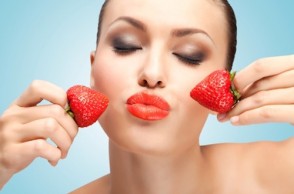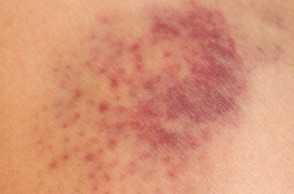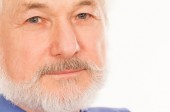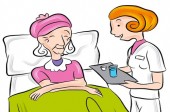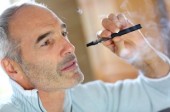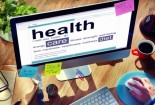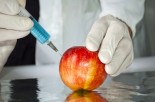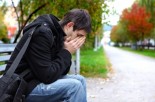Canceled Clients (4762)
Children categories

Train Your Body (438)
The show for fitness buffs or beginners. Expert guest from the American College of Sports Medicine (ACSM) discuss all areas of fitness, nutrition, athletics and sports medicine.
View items...
Staying Well (382)
RadioMD’s “talking” Health A-Z hosted by senior health correspondent, Melanie Cole, MS. Melanie interviews experts in the world of health, wellness, fitness and medicine.
View items...
Healthy Talk w/ Dr. Michael Smith (698)
Integrative physician, Michael A. Smith, MD is committed to providing listeners with the most current health information available.
View items...
Naturally Savvy (899)
Registered Holistic Nutritionist, Andrea Donsky and health expert Lisa Davis discuss their passion for living a natural, healthy lifestyle.
View items...
Eat Right Radio (48)
EatRight Radio, with experts from the Academy of Nutrition and Dietetics, discusses food and nutrition topics, healthy weight, allergies and health conditions, healthy aging, food safety and so much more. Give us 10-minutes and we'll give you the important information and expert advice from registered dietitian nutritionists to help you eat right, feel better, and live a healthier life. Hosted by Melanie Cole, MS.
View items...
Sharecare Radio (235)
Sharecare Radio, hosted by Sharecare’s own Dr. Darria Long Gillespie, SVP of Clinical Strategy at Sharecare, will appear live every Tuesday from 12 to 1 p.m. EST on RadioMD. Dr. Darria will break down the top health news of the week, pull in experts from around the country on a wide array of health topics and answer listeners’ live questions on all things health.
View items...
Wellness for Life (455)
On Wellness For Life Radio you will learn practical, easy-to implement tips to improve your life and start feeling better — the natural way.
View items...
The Wizard of Eyes (163)
Dr. Robert Abel Jr. talks about many of the important and unrecognized parts of our visual system which we so often take for granted. The show covers the usual common ocular disorders with an East/West approach to both prevention and therapy. The eye-brain connection is presented with information about memory retention, Alzheimer's, the myopia epidemic, and many more subjects. Dr. Abel discusses how the eye and vision are connected with remote parts of the body including your gut flora, musculoskeletal system, blood pressure, drugs and lifestyle. practical and simple health tips.
View items...
Code Delicious with Dr. Mike (135)
Code Delicious with Dr. Mike breaks all the rules. Unabashedly confronting the questions, concerns and conundrums that continually confuse both public and experts alike; Dr. Mike takes us on a tasty trip of inquiry.
View items...
CLEAN Food Network (98)
This show is a call to action for all the clean eating revolutionaries that care about their health and how and what they eat. Non-GMO, natural, organic . . . food the way nature intended. The clean food movement is huge and is growing exponentially. This companion program talks to experts in food preparation, healthcare, celebrities, and even those companies that care enough to provide the best, wholesome, organic foods and groceries.
View items...
Talk Healthy Today (213)
Looking to create your best self? Whether it’s good-for-you lifestyle hacks, smarter ways to supplement, or tasty tips to fuel optimal health, Talk Healthy Today brings you the latest research, tools, and common sense tips you need to get and stay healthy... starting today!
View items...
Be a Doer (17)
Be A Doer features master coach and TV personality John Abdo as he shares health and fitness tips aimed at getting you in shape – and keeping you there!
View items...The Power of Probiotics (3)
Probiotics is a major global industry. But like any industry, it had to have a beginning. Natasha Trenev is the daughter of an Eastern European family where the manufacturing of yogurt was a generational business. When Natasha emigrated to the US in the 1960’s, she brought with her 750 years of family experience with probiotics – and introduced the science (and the term itself) to her new country. Today, Natasha’s California-based Natren, Inc. is the recognized pioneer in probiotics and company founder Natasha Trenev has earned recognition as the Mother of Probiotics. Her more than 50 years of work in natural health is at the core of the unparalleled success of her company – and you will benefit from her depth of expertise in each and every episode of THE POWER OF PROBIOTICS.
Probiotics are live microrganisms that are commonly referred to as ‘friendly,’ ‘good’ or ‘healthy’ bacteria that function to help maintain the natural balance of organisms in the intestine. Throughout Natasha’s extensive work in the field of probiotics, she has always been amazed by how nature provides the very ‘good’ bacteria that can help overpower ‘bad’ bacteria to keep our digestive tracts functioning at peak performance. Properly cultivating friendly bacteria and ensuring their potency is at the core of the Natren Process. Natren is cited – by retailers, by the medical community and by consumers – as the best probiotic supplement available. Only Natren carefully chooses its probiotic cultures, formulates and manufactures its industry standard probiotics in its own plant and utilizes a specially-formulated oil matrix to protect probiotics bacteria to survive until they reach their destination in the upper small intestine. This is why only Natren is the most trusted probiotic supplement on the market. Truly, where other probiotic supplements promise – Natren Delivers.
To learn more about how probiotics can benefit your health, we are proud to introduce you to THE POWER OF PROBIOTICS with The Mother of Probiotics, Natasha Trenev.

Your Brain Health (24)
Noted Los Angeles-based neuroscientist and media personality Dr. Kristen Willeumier launches Your Brain Health with Dr. Kristen Willeumier, a podcast series that explores the latest news and information in the burgeoning science of brain health.
View items...Additional Info
- Segment Number 1
- Audio File wellness_for_life/1508wl5a.mp3
- Featured Speaker Margarita Restrepo, Founder of Naked Food Magazine
- Guest Website Naked Food Magazine
- Guest Twitter Account @NakedMargarita
-
Guest Bio
 Songwriter/Producer Margarita Restrepo stays busy as a Designer and as the Founder and editor-in-chief of Naked Food Magazine. She is certified in plant-based nutrition from the T. Colin Campbell Foundation and Cornell University, and holds a double major degree in Graphic Arts and Marketing.
Songwriter/Producer Margarita Restrepo stays busy as a Designer and as the Founder and editor-in-chief of Naked Food Magazine. She is certified in plant-based nutrition from the T. Colin Campbell Foundation and Cornell University, and holds a double major degree in Graphic Arts and Marketing.
She is an advocate for educating the world about the whole food, plant-based diet and the naked way of life. After losing her boyfriend and music partner to a stage IV brain cancer (GBM) in January 2012, she felt the responsibility to help as many people as possible, including herself, understand the importance of nutrition in the development or reversal of diseases. Following a plant-based diet helped decrease the size of her boyfriend’s tumors by 25 percent. She had been diagnosed as well with anxiety attacks, and a severe iodine deficiency, which have disappeared since following her Naked Diet.
Naked Food Magazine is an initiative focused on preventing and reversing chronic degenerative diseases such as cancer, diabetes, heart disease, Alzheimer’s, Lower Respiratory Diseases, Nephritis, and Multiple Sclerosis among others. It also addresses other non-deadly conditions that are affecting the current state of health such as obesity, osteoporosis, chronic pain, digestive health, and hypertension, also linked to nutritional factors. -
Transcription
RadioMD Presents: Wellness for Life Radio | Original Air Date: February 20, 2015
Host: Susanne Bennett, DC
Guest: Margarita Restrepo
DR. SUSANNE: Have you heard of Naked Food Magazine? Now, Naked Food Magazine is the leading whole food plant-based nutrition consumer publication with a big mission to promote a plant-based nutritional approach to reverse and prevent disease. The magazine covers areas such as nutrition, prevention and healing of disease, wellness, fitness, recipes, lifestyle features and tips.
I am so thrilled to welcome the founder and editor in chief, Margarita Restrepo, to Wellness for Life to discuss all of the fun nakedness that she has been promoting.
Welcome, Margarita!
MARGARITA: Oh, thank you so much I’m delighted to be here. Thank you.
DR. SUSANNE: Margarita, what do you mean by “naked food” and I know it has nothing to do with being buck naked and eating good food. What do you mean by naked food?
MARGARITA: Yes. You know, that’s a great question. Actually, naked stands for the “New American Kind and Enlightened Diet”. That’s exactly what it means and naked really refers to food that loves you back. It’s food that does not have any type of additives, toxins, colorants. In other words, it’s food that is really true food in its prime state. You know? Nothing added; nothing toxic to our health. So, it’s completely naked.
DR. SUSANNE: Got it. So, what you’re saying is, you want pure food. Pure food like from earth to mouth directly.
MARGARITA: Correct.
DR. SUSANNE: Something that is so natural without it be adulterated with toxins and GMO and fertilizers and everything else that we deal with here in America and a lot of other countries.
MARGARITA: Exactly.
DR. SUSANNE: But, of course, that’s specifically what I promote also because I know there are so many allergies, so many diseases out there these days and a lot has to do with what you put into your body.
So, can you tell us what spurred you to make this magazine, Naked Food Magazine?
MARGARITA: Yes, sure. Absolutely. You know, the inspiration for the magazine actually came from a personal tragedy, unfortunately. My boyfriend passed away in 2012 from brain cancer. This type of cancer is called a glioblastoma multiforme. It’s a type of cancer that is primarily located in the brain and it’s very fast, very bad. One of the amazing things that I discovered through this painful experience is that when he got diagnosed with cancer, we both started a plant-based diet. This was because he did not believe in other kinds of therapy. You know, he did not want to chemotherapy; he did not want to do radiation, which are the things that doctors really advise you to do in this kind of case. There was really no cure for this cancer, so he decided to do a more holistic approach and we decided to start a plant-based diet.
Just to tell you briefly, this cancer does not stop. In other words, there was no way for the cancer to really stop growing or stop developing. After we started the diet, about 3 months later, he had another MRI--another scan of his brain--and the doctors were astounded. I mean, they didn’t even know what was happening because they discovered that the cancer had actually had a reduction of 25% in its growth. And, I mean, unfortunately, by the time we started the diet, it was a little bit too late for complete reversal of the disease. It was just too late, but it was an amazing result, after 3 months for this kind of cancer. So, he passed away 8 months later and I decided to, after really learning so much, not only about diet and our health system and what it means when somebody gets cancer. The fact that it has become a complete business. It’s a cash cow, unfortunately, for the insurance companies, for a lot of these so-called medicines that they prescribe to people with cancer and this applies to every other disease. So, after learning and opening my eyes to this, which I really was not aware, I decided to start something that was an informational matrix, really. Something that could inspire people to change—not because of fear—but because actually, knowledge is power. When you know these things and you can apply them to your life, then the power is yours and you have the choice to really choose what you want.
DR. SUSANNE: That’s right. What an inspirational story. I mean, absolutely, for you it was an experience that made you look at life completely different and you are helping now millions and millions of people, giving them valuable content and from your experience, you’re really helping the world in feeling better. Prevention is key. You know, I truly believe that there are three different reasons that can cause illness in your body or problems. Number one is what you eat. Thirty percent--a third of your diet--has something to do with why you’re ill. The second is the environment is that you live in and the third is genetics.
MARGARITA: Sure.
DR. SUSANNE: But, we have the control of the first two: environment as well as the food that you eat. I see that on your website with NakedFoodMagazine.com that you do just that and I see that that’s what you’re striving for.
MARGARITA: Sure. When you explain to people that our bodies have a relationship with what’s outside of ourselves—meaning our environment—and really the one thing that enters our body is the food. You know, besides the environment, that’s the one thing that we put in our bodies. Even when, as you were saying—which is completely correct—even if you are genetically predisposed to something, it is your lifestyle that can determine the future of those genes either developing or promoting some kind of disease. It’s really in your hands to make this choice and that’s something that people don’t know.
DR. SUSANNE: That’s right.
MARGARITA: It something that, when they get cancer, or they get Alzheimer’s or some bad disease, they feel like, “Oh, well. You know, that’s my fate. I guess, you know, I’m older.” Actually, it happen at any age, but it’s really not like that. It’s something that we can at least try to do it, because I mean if you do it, it’s not a completely 100% guarantee, but it’s a great chance that you will not develop any of these things.
DR. SUSANNE: Yes. That’s so true. Absolutely, Margarita. What you’re saying is that, although we have these genes—the genotypes of who we are—we actually can prevent the expression of these genes which is called the “phenotype”—the way it is expressed. That’s such a great point to be made. I so appreciate that. Everyone, you’ve got to go to NakedFoodMagazine.com.
Also one of my favorite spots is the Naked Friday. Thank you so much. Thank you so much, Margarita.
To learn more, please go to my Wellness for Life radio page on RadioMD and you’ll be able to get more information about Margarita.
I’m Dr. Susanne sharing my natural strategies for ultimate health and wellness right here on RadioMD.
Stay well! - Length (mins) 10
- Waiver Received No
- Host Susanne Bennett, DC
Additional Info
- Segment Number 5
- Audio File healthy_talk/1508ht5e.mp3
- Organization Life Extension
- Guest Website Healthy Talk MD
-
Transcription
RadioMD Presents: Healthy Talk | Original Air Date: February 20, 2015
Host: Dr. Michael Smith
You’re listening to RadioMD. It’s time to “Ask Dr. Mike” on Healthy Talk. Call or email to ask your questions now. Email: AskDrMikeSmith@RadioMD.com, or call: 877-711-5211. The lines are open.
So, I have a question here about rosacea and then another one I wanted to answer about blue marks and bruising easily, but before I did that, what I do is I just print out my emails. I mean, you can send your question to AskDrMikeSmith@RadioMD.com. You can send one right now. But, I just print them out. I just pretty much do them in order for the most part and I was skimming through and I came across this one and I have no idea how to answer it, but I’m going to. I have a dog. I’m a dog lover. I’ve always had dogs my whole life. Right now, I have a dog. Her name is Edie. She’s about 6 years old. She’s a border collie mix. Just awesome. So, I saw this and it caught my eye. So, I’m going to read this question, but I have no answer. Is that okay?
Here’s the question: Do you know anything about head butting? Yeah. Do you know anything about head butting in pets?
No.
So, I’m going to have to look that one up and respond through email. Maybe have some of the life extension health advisors help me. I actually just pulled it up on Google real quick and there’s a picture. Okay. See? It’s not even what I thought. I’m thinking head butting in pets means your pets are head butting each other. But, that’s not what this image shows. Where is the image from? Well, anyway, it’s a picture of a dog with its head down against a wall and they call that “head butting”. Apparently, maybe they just kind of bounce their head off the wall. And, well, just the brief description there is, it is worrisome. So, if your dog or your cat does that—head butts walls, I guess—in that kind of position with the head down, you need to go have the vet check that out. It could be a neurological thing. So, I’ve never even heard of that. Thank God, Edie does not do that. She does other things, but she does not head butt a wall. But, if your pet does that, no, I don’t know anything about it, but it does look like something a vet needs to check out.
God. Oh, isn’t Google wonderful? Thank God for Google. What did we do before Google? We went to the library and it took us two weeks to answer one question. So, we couldn’t do “Ask Dr. Mike” without Google.
Let’s go to the rosacea question.
“I’m a 45-year-old adult male. I thought I was past the acne stage, but my skin continues to break out. My dermatologist said it’s actually rosacea. What is the cause and nature of this condition and is there any treatment or cure?”
So, it could be both. I’ll describe what rosacea is here in a second, but when you have a rosacea flare-up, the flare-up itself increases skin inflammation which can clog some of the pores and that can cause, actually, a breakout. So, you can get acne breakouts within a rosacea breakout. So, you could have both, okay? So, the question, though, is more focused around the rosacea, Again, remember, I’m not a dermatologist. I’ve mentioned that before. My medical training is “if it’s wet, dry it and if it’s dry, wet it”. Don’t laugh. It works. So, I have to do some research with the dermatology questions.
The cause of rosacea remains unknown. Inherited factors may play a role. Some research suggests that rosacea sufferers have blood vessels that dilate too easily resulting in a flushing or redness of the skin and, basically, if that happens, if your vessels dilate and skin comes to the surface, that’s basically inflammation. That’s what inflammation is. Inflammation is blood flow increasing to a certain area. That’s what it is. And, it’s usually in response to something. So, to me, reading this, there’s some sort of trigger, though. I mean, just because your blood vessels are dilating and bringing blood to the surface, that’s still not answering the question for me. There still must be some trigger causing that. To me, it’s an inflammatory process. Could it be infectious? Could it be allergens? I don’t know.
Numerous factors can cause rosacea to flare up in one person, but have no effect in another individual. Some people claim that one or more of the following have aggravated their rosacea:
Heat, hot baths, strenuous exercise, sunlight, wind, very cold temperatures, hot or spicy food. I haven’t heard that one. Alcohol consumption, menopause, emotional stress and steroid use on the face.
So, bottom line is, we don’t really know what rosacea is. To me, it’s some sort of inflammatory process. There’s some sort of trigger. Whether some of those aggravators that I just read can be the trigger for the inflammatory process, maybe so. I’m not sure. I, personally, would like to see some rosacea research into infectious origins. You know why? Because if you use an antibiotic cream, in most cases, that works the best. Most doctors simply just give an antibiotic cream. Why? Well, they’ll tell you that they’re trying to prevent a secondary infection because of the inflamed skin and when skin’s inflamed, it allows more bacteria to come in. All that’s true, but could they be treating some sort of, you know, previously unidentified bacteria that’s linked to rosacea? That might be something worth researching. There’s also some evidence that Diosmin will work. I’ve mentioned that before. Diosmin is from the rind of citrus fruit. It helps the vasculature, specifically the veins, to maintain tonicity so that will decrease that inflammatory response a little bit, decrease the dilation. It will get rid of some of that fluid faster. So, Diosmin might be helpful. And then, I wrote down here “white peony”. White peony is an herb that has some immune modulating effects, meaning that it tends to turn on certain parts of the immune system by kind of deactivating other parts. Kind of rebalancing the immune response. White peony has had some benefit in autoimmune issues, even some big ones like lupus. So, could there be some sort of overactive immune response here? Maybe the trigger is some bacteria, but we overreact. We get that inflammation in the skin. You get the flare up of the rosacea. That’s all possible. So, maybe the antibiotic cream, the Diosmin to control the vascular aspect of it and the white peony to control maybe that overactive immune response. I would try those three things. But, I’m not a dermatologist. Talk to your dermatologist.
Let’s go on to the next question that I promised about bruising easily. We’ll see how far I get with this.
“I frequently get black and blue marks and bruise very easily. Can you explain why this happens and what can be done about it?”
Well, okay. The first thing is, if it’s chronic--if this has been going on a long time--you might have some blood clotting problems. So maybe right there, you just need to have a good hematological workup. You know, there are doctors who study the blood. Hematologists. I have a good friend of mine back in Texas where we went to school—in Dallas. He’s a hematologist. So, maybe you need a good blood clotting workup. I mean, that’s just a thought. You also might have to consider poor diet. Malnourishment has been associated with easy bruising. For instance, if you’re not getting enough Vitamin C. You know, if you have absolute Vitamin C deficiency, that’s called scurvy. That’s not what I’m talking about, but even just, you know, slight drops in Vitamin C. You know, maybe I’ll just call it a “Vitamin C inefficiency”. It’s not really a deficient level, but maybe just not enough. That’s been associated with weakening of vessel walls and maybe some bruising there. So, maybe some Vitamin C rich foods that are called bioflavonoids from citrus plants.
So, I guess my focus would be diet, first. Vitamin C, anti-oxidants from bright-colored fruits. That’s going to give you these things called bioflavonoids. All that could help, but if this is really an ongoing problem, I would see a hematologist.
This is Healthy Talk on RadioMD. I’m Dr. Mike. Stay well.
[END OF RECORDING] - Length (mins) 10
- Waiver Received No
- Internal Notes NO GUEST
- Host Mike Smith, MD
Additional Info
- Segment Number 4
- Audio File healthy_talk/1508ht5d.mp3
- Organization Life Extension
- Guest Website Healthy Talk MD
-
Transcription
RadioMD Presents: Healthy Talk | Original Air Date: February 20, 2015
Host: Dr. Michael Smith
It’s time for you to be a part of the show. Email or call with questions for Dr. Mike now. Email: AskDrMikeSmith@RadioMD.com or call: 877-711-5211. What are you waiting for? The doctor is in.
Alright. So, I have my first question here about what is called the VAP test—advanced cholesterol testing and lipoprotein(a). So, here’s the question:
“I had a VAP test done and my lipoprotein(a) was high. Are there supplements that lower lipoprotein(a)?”
Okay. So first, there’s actually a lot to this question. That’s why I wanted to start with it. First of all, what is a VAP test? A VAP test is simply an advanced cholesterol test. You know, I’ve had the authors of the book, The Great Cholesterol Myth, Dr. Stephen Sinatra, who’s one of the leading natural cardiologists in the world, really, and he wrote the book with a nutritionist, Jonny Bowden. I’ve had them both on my show talking about the cholesterol myth. And, you know, one of the things that both of them have said, and I’ve said this before and I agree with them totally, it’s if you just look at total cholesterol or you just look at the bad stuff (LDL) or the good stuff (HDL), by themselves, those are not really the risk factors. You know, cholesterol comes in many different subforms and subtypes. There are different subtypes of LDL cholesterol. There are different subtypes of HDL cholesterol and it’s really those subtypes that give us more information about what your risk is for heart disease from cholesterol. So, the standard cholesterol testing--which is total cholesterol, LDL, HDL and triglycerides--other than the triglycerides, those other three measuring cholesterol don’t really tell us anything. They’re not really helpful in any way and that’s the great cholesterol myth. So, what I have suggested and Dr. Sinatra and Dr. Bowden, also agree, is that what we need to be doing is more advanced cholesterol testing which is available and it’s not that much more expensive. It should be a part of a yearly workup for people. Advanced cholesterol tests, they break down the cholesterol—the good and the bad—into these subtypes and it just gives you so much more information about, you know, where your risk really is.
So, is cholesterol a risk factor for heart disease? Well, by itself, total cholesterol—even LDL, HDL—no, they’re not. It’s the subtypes that we need to look at. It’s the subtypes that bring the risk and one of those subtypes—and you’ll find this only in the advanced testing—is something called lipoprotein(a). Some people call it LP(a), lipoprotein(a), lipoprotein A, it’s all the same thing. It is a very atherogenic compound that sticks out on the surface of the LDL molecule.
Now, LDL stands for low density lipoprotein. It is the carrier molecule for cholesterol and fat from the liver where all that stuff is made and the LDL molecule is the carrier to take all that cholesterol and fat out to your body to your cells and tissues. One of the markers on that carrier molecule called “LDL” is this thing called lipoprotein(a). And, let me tell you, that’s the thing that causes LDL to get sticky and stick in arterial walls and cause atherosclerosis. It’s not the LDL itself, it’s something like the lipoprotein(a) that’s really causing the problem.
So, in this case, this gentlemen had the advanced cholesterol test. I say gentleman. I don’t know why I assumed he was a man. I don’t have that information here. I just did. This listener had the advanced cholesterol test done which is awesome. It included a lipoprotein(a) which is awesome and his was high. Usually, when it’s above 10, you know, that’s when we start getting a little concerned. Above 20, that’s definitely a risk for heart disease. So, I don’t know where the number was for this person, but it was high. So, at least over 10. And he or she wants to know, “What can I do to bring this down?” Well, now, so it’s great to know that. Now, the bad news in all this is, you know, lipoprotein(a) is really hard to bring down. A lot of the traditional supplements that we might use to lower LDL cholesterol, like red yeast rice or, you know, there is Pycnogenol. There are other ones like Policosanol. These are classic. Guggulipids which is a type of soluble fiber. I mean, there are all kinds of different traditional supplements that help to lower LDL completely, but they don’t seem to have a great effect on the lipoprotein(a). There have been some studies that show that Niacin--at high doses, now—about 1500 mg to 2000 mg of Niacin. Now, that’s a lot of Niacin, so if you’re not used to that, don’t start that high because you’re going to flush and you’re not going to be happy with me. So, don’t do that. It might be able to help to bring liproprotein(a) down and, in particular, Niacin mixed with Omega-3 oil. So, Niacin supplement plus an Omega-3 supplement. So, maybe a gram of Niacin plus a gram of Omega-3 has been shown to maybe have some effect on lipoprotein(a). Eating walnuts. I saw a small study where a handful of walnuts a day was helpful. But, here’s the thing: if the lipoprotein(a) was the only thing that was elevated on your VAP, I think you’re fine. I mean, you have to take it into context. I mean, yes, do some things to try to bring it down, maybe. If everything else was okay, maybe just try some walnuts first or something. But, Niacin plus fish oils, plus walnuts would be my best suggestion.
Second question: I think I’m okay here. In keeping with this cardiovascular line of questioning here, “I have a 50% blockage in my left carotid artery and a 40% in my right. My doctor is going to “watch and wait” but I would rather be more proactive. Do you have any suggestions to prevent this from getting worse?”
So, the carotid arteries are in the neck. They go from the heart into your brain, basically, and bring all the good stuff into your brain. It’s the pulse you can feel in your neck. That’s the carotids. Have you ever had a doctor take a stethoscope and place it over your neck and you’re like, “What is he doing? That’s not where my heart is. That’s not where my lungs are.” Well, no. He’s listening for the carotid because if you hear a little wispy sound, that means there could be some blockage there and then, usually, they do an ultrasound to actually identify the blockage. So, in this case, this person had a 50% blockage on one side and 40% on the other, so what can you do? Well, there are some things. Number one, I would probably increase my Vitamin K2 amount. At least a milligram of Vitamin K2. Now, Vitamin K2 is broken up into two major subparts. There’s one called “MK-4” and one called “MK-7”. So, Vitamin K2 is broken up into MK-4 and MK-7. MK-4 is about a milligram a day. MK-7 is about 200 micrograms a day. If I want to get real technical about it, your total Vitamin K2 amount should be about 1.2 milligrams. Okay? One milligram coming from MK-4 and 200 micrograms coming from MK-7. So, that’s the first thing. I would increase Vitamin K2. Vitamin K2 helps to get calcium out of that kind of stuff which could help to decrease the blockage.
You might also consider chelation therapy. Now, you can do the real expensive one with doctors who do that. It’s called “EDTA”. It also removes calcium, plus some other metals, from your body. It can reduce oxidative stress, but it can be expensive, but it’s been shown and there have been a couple of studies recently showing that IV chelation is good for these kinds of blockages. We’re not concluding anything here yet, but it looks very promising. So, maybe chelation therapy. There’s also oral chelation with EDTA that’s available. But now, that’s never been studied. All the studies have been done with IV chelation. So, check that out. And, I do like Pycnogenol—pine bark extract—for this kind of stuff.
So, increase your Vitamin K2, the MK-4 and the MK-7; try some chelation, maybe, with EDTA; and pine bark extract which is better known as Pycnogenol. That might help.
This is Healthy Talk on RadioMD. I’m Dr. Mike. Stay well.
[END OF RECORDING] - Length (mins) 10
- Waiver Received No
- Internal Notes NO GUEST
- Host Mike Smith, MD
Additional Info
- Segment Number 3
- Audio File healthy_talk/1508ht5c.mp3
- Organization Life Extension
- Guest Website Healthy Talk MD
- Length (mins) 10
- Waiver Received No
- Internal Notes NO GUEST
- Host Mike Smith, MD
Additional Info
- Segment Number 2
- Audio File healthy_talk/1508ht5b.mp3
- Organization Life Extension
- Guest Website Healthy Talk MD
- Waiver Received No
Additional Info
- Segment Number 1
- Audio File healthy_talk/1508ht5a.mp3
- Organization Life Extension
- Guest Website Healthy Talk MD
- Length (mins) 10
- Waiver Received No
- Host Mike Smith, MD
Additional Info
- Segment Number 5
- Audio File naturally_savvy/1508ns3e.mp3
- Featured Speaker Jacob Teitelbaum, MD
- Book Title Real Cause, Real Cure
- Guest Website Jacob Teitelbaum, MD
- Guest Twitter Account @DrJTeitelbaum
-
Guest Bio
Jacob Teitelbaum, MD, is a board certified internist and Medical Director of the national Fibromyalgia and Fatigue Centers and Chronicity. He is author of the popular free iPhone application "Cures A-Z," and author of the best-selling book From Fatigued to Fantastic! (Avery/Penguin Group), Pain Free 1-2-3 — A Proven Program for Eliminating Chronic Pain Now (McGraw-Hill), Three Steps to Happiness: Healing Through Joy (Deva Press 2003), Beat Sugar Addiction NOW! (Fairwinds Press, 2010), and his newest book Real Cause, Real Cure (Rodale Press, July 15, 2011). Dr. Teitelbaum knows CFS/fibromyalgia as an insider — he contracted CFS when he was in medical school and had to drop out for a year to recover. In the ensuing 25 years, he has dedicated his career to finding effective treatment.
Dr. Teitelbaum does frequent media appearances including Good Morning America, CNN, Fox News Channel, the Dr. Oz Show and Oprah & Friends. - Length (mins) 10
- Waiver Received Yes
- Host Andrea Donsky, RHN and Lisa Davis, MPH
Additional Info
- Segment Number 4
- Audio File naturally_savvy/1508ns3d.mp3
- Featured Speaker Gene I. Ridley, DN, ND
- Guest Website Herbal Solutions
- Guest Twitter Account @herbsolutions
-
Guest Bio
Dr. Gene I. Ridley is a naprapath, naturapath, herbalist, and natural healthcare physician in practice treating patients in Chicago for 32 years. He is also a practicing diagnostician specializing in kinesiology and has extensive knowledge in anatomy, physiology, chemistry and nutrition. These fields have provided him with keen insight into natural healing principles and applications. He has developed over 80 proprietary herbal formulas, used in his practice and around the world, to address and correct many diseases, especially chronic conditions. Dedicated to finding natural, effective, non-invasive methods of correcting and improving health issues, Dr. Ridley has assisted the healing process in several thousand people.
Dr. Ridley has been a featured speaker at the Green Festival, the Health Freedom Expo, the Corey Brooks Community Empowerment radio show and has conducted numerous workshops for Greenheart and community health organizations in Chicago. He was featured in a special documentary broadcast on WBEZ (Chicago NPR) during the series “Chicago Matters: Health." - Length (mins) 10
- Waiver Received Yes
- Host Andrea Donsky, RHN and Lisa Davis, MPH
Additional Info
- Segment Number 3
- Audio File naturally_savvy/1508ns3c.mp3
- Featured Speaker Lisa & Ron Beres, Certified Green Building Professionals
- Book Title Just GREEN It! Simple Swaps to Save the Planet + Your Health
- Guest Website Ron and Lisa: The Healthy Home Dream Team
- Guest Facebook Account https://www.facebook.com/RonandLisaTheHealthyHomeDreamTeam
- Guest Twitter Account @RonandLisa
- Guest Bio Ron and Lisa Beres are Certified Green Building Professionals, Building Biologists and published authors of several books including, Just GREEN It! and the children's book, My Body My House. In addition to testing the health of homes, their consulting business includes celebrities and Fortune 500's. They are award winning television media experts and have appeared on The Rachael Ray Show, The Suzanne Show, The Doctors, Fox & Friends, The Today Show with Matt Lauer, NBC’s Nightly News with Brian Williams, Discovery’s Greenovate and Chelsea Lately on E!
- Length (mins) 10
- Waiver Received Yes
- Host Andrea Donsky, RHN and Lisa Davis, MPH
Additional Info
- Segment Number 2
- Audio File naturally_savvy/1508ns3b.mp3
- Featured Speaker Scott Stossel, Author
- Book Title My Age of Anxiety: Fear, Hope, Dread, and the Search for Peace of Mind
- Guest Website Scott Stossel
- Guest Twitter Account @SStossel
- Guest Bio Scott Stossel is the editor of The Atlantic and the author of Sarge: The Life and Times of Sargent Shriver. His latest book, My Age of Anxiety: Fear, Hope, Dread, and the Search for Peace of Mind, is a national national bestseller. His articles and essays have appeared in The Atlantic, New Yorker, New Republic, New York Times, Wall Street Journal, and many other publications. He lives with his family in Washington, D.C.
-
Transcription
RadioMD Presents: Naturally Savvy | Original Air Date: February 18, 2015
Hosts: Andrea Donsky, RHN and Lisa Davis
Guest: Scott Stossel
LISA: This is Lisa Davis. Andrea Donsky is off today.
Growing up, I was a very shy child, which is hard to believe now because you can’t stop me from talking, but I was very uncomfortable. Any time I knew I had to give a speech or even if we were just going around the room saying something, my heart would beat so fast and I would turn bright red. The other kids used to call me “Cherry Face” because I was constantly embarrassed and constantly anxious and “Please don’t call on me,” and the whole nine yards.
Well, somebody who knows a lot about being anxious is our next guest, Scott Stossel. He is the national, best-selling author of My Age of Anxiety, Fear, Hope, Dread and the Search for Peace of Mind.
Hi, Scott.
SCOTT: Hi, Lisa. How are you?
LISA: I’m good. How are you?
SCOTT: I’m good, thanks. Thank you for having me on.
LISA: Oh, I’m so glad to have you on. Scott and I have had the pleasure of speaking before and I read his book cover to cover. It is absolutely fantastic. I highly recommend it. Now, it’s funny for me, Scott. My anxiety was really contained to just the classroom situation. In other areas of my life, I was okay. But for you, you talk about it being pretty crippling from the age of 2 on. Tell us a little bit about that.
SCOTT: Well, sure. And, I’ll start by saying that I can totally relate to your public speaking fears and, you know, I’ve had friends who’ve had blushing problems or many people who have acute public speaking fears, they become debilitating. They become so self-conscious about their blushing that they actually contemplate a surgery that you can get that cuts down on your blushing. Blushing for me is not a problem--it’s more sweating and other symptoms--but I remember being in high school and several times giving a presentation in front of the class and, suddenly, my head would start to swim and I’d have to excuse myself and sit down. Of course, when you’re a 7th grade boy and all your 12-year-old peers are laughing at you, that’s about as mortifying an experience as you can have at that age. But, like you said, my anxieties and phobias are from a young age and extended far beyond that and included things ranging from fear of heights and kind of claustrophobia to separation anxiety, sort of terror of my parents dying and being away from my parents to more idiosyncratic phobias like my emetophobia, which is the acute sort of pathological fear of vomiting and which I developed at a young age.
LISA: Yes. Those are so complicated and one of the things—I mean, there are so many great things in your book—you really go into the history of anxiety and I love how you call it the “riddle of anxiety”. Tell us a little bit about what you learned about this riddle.
SCOTT: Well, I learned a lot. It was, in some ways, therapeutic working on the book. I was always interested in kind of the history of the idea of anxiety and also the science. To some degree, anxiety remains a riddle, but it’s a riddle that the investigation of which really sheds light not just on anxiety, but on the whole human condition and that’s for a few reasons. The main reason being that anxiety, like any emotion and anxiety disorders and like any psychiatric or emotional disorder, are a mixture of sort of a physical problem. This is a problem. It’s a brain disease. It’s a dysfunction of neurotransmitter systems. People who are acutely anxious may have actual irregularities in the structure of their brain. At the same time, it’s also a psychological problem that’s sort of overlaid and may be independent of these physical problems. Then also, for many people, it may be sort of a philosophical or a spiritual problem about are you living the right life? You know, am I believing the right things? And so, solving the real anxiety, which is kind of a quote from a mid-century researcher in the 1950’s at Cornell named Howard Liddell, sort of growing on Freud, that if you can sort of solve the mystery of anxiety which, again, is evolutionary designed impulse that kind of goes awry, you learn a lot about how the brain relates to mind and how we come together as personalities.
LISA: One of the things that really struck me in the book, too, was the idea of coming out and you say, “For a long time, governed by reticence and shame, I told people who inquired about my book that it was a cultural and intellectual history of anxiety. True, as far as it goes, without revealing its personal aspects.” Tell us about that dinner party and how that really opened your eyes to things.
SCOTT: Yes. So, as you say, I’m 45 years old now and I developed anxiety when I was 5 or 6. I was first diagnosed when I was 10 and for the first three decades, I would go to great lengths to hide my anxiety. I would keep my pills hidden away and I would go to elaborate lengths to conceal—make up excuses for--why I was disappearing for therapy appointments. And then, as I was working on the book, I was at this dinner party, as you alluded to and I sort of, for the first time, gingerly mentioned that it’s an intellectual and scientific history of anxiety, but it’s also kind of a memoir about my own experiences and to my astonishment…It was a dinner party. We were there with probably 12 other people at the table and about 6 within earshot and all those 6 immediately came forward and shared their own experiences of anxiety which were not limited experiences. I think 4 out of the 6 of them had taken medications of various kinds, some had had panic attacks, some of them had been hospitalized, some of them had similar phobias. Some of them were completely different and that was at the point I realized, when they came forward and shared with that sort of enthusiasm and sympathy, I realized, “Well, maybe coming out with this will not be shameful and isolating as I feared it might, but actually kind of empowering and, you know, create solidarity between me and my fellow anxiety sufferers.”
LISA: Yes. I think it makes so much sense to come out and talk about it. Another thing, too, you write is, “I don’t have to look far to find evidence of anxiety as a family trait.” You write about your great-grandfather. You know, I look at my daughter who has anxiety and Autism spectrum and ADHD and a couple other things. I look at my family--my husband’s family and my family. I’m like, “Oh, yeah. Okay. This makes sense.” So, that was something that I think I really do see that genetic link.
SCOTT: Yes. Absolutely. I mean, kind of going into the book I had a sort of intuitive sense of that because I knew, as you said, that my mother and father’s father had, despite having a very successful career for many years, he’d always been an anxious person and in his 50’s, which was in the late 1940’s, in the 40’s, 50’s and 60’s, he spent much of his time in and out of psychiatric hospitals undergoing all kinds of therapies. Then, my mother kind of had…I always assumed I learned from watching her a lot of my anxious temperament and some of my specific phobias. Looking at the scientific literature, there are piles and piles of research now accumulating about what different genes and constellation of genes contribute to anxiety disorders. So, I never want to say, and no one should ever conclude, that our genes are our destiny or that your heredity is going to doom you to being eternally anxious or blessed you with immunity to it, but it’s a strong contributing factor. Then, of course, that interacts with the nature of your upbringing and the kinds of things you go through in life--trauma and so forth-- and sort of helps determine whether you will develop an anxiety disorder or be relatively serene.
LISA: You know, here on Naturally Savvy, we talk a lot about natural health and using alternative medicine, but I have to be quite frank. I think medication is great for some things and I think that if that’s something that somebody needs and they might do it in conjunction with or they’ve tried the natural remedies and there’s a certain point in their life where they’re like, “You know what? This medication’s really helping me,” I have nothing against that. So, I just want to throw that out there. It might be shocking to some listeners, but I think it’s really important to keep an open mind and not be judgy.
SCOTT: Yes and what I would say is--and I talk a lot about medication in my book and I have mixed feelings about it myself. I think all things being equal, you’re better off not having to rely on medication for anxiety or whatever your psychological ailment may be. There are side effects associated with them and dependency issues and sometimes the drugs are just masking or treating symptoms but not the underlying problem and they’re actually keeping you from addressing the underlying problem.
But, all that said, if you are in acute distress, for many people, including myself at times, taking a pill is the difference between the ability to lead a kind of normal, functional life and being rather debilitated and housebound. So, I agree with you.
LISA: Scott, the time goes by way too fast. I say that all the time. My Age of Anxiety, Fear, Hope, Dread and the Search for Peace of Mind. You can learn more about Scott by going to www.ScottStossel.com. That’s one “L” in Stossel.
I just want to thank you. This book really is so incredible and the research and your own personal story. So, thank you so much for coming on Naturally Savvy.
It’s been such a pleasure.
SCOTT: Well, thanks so much for having me. I really appreciate it.
LISA: So, be sure to listen to Naturally Savvy here on RadioMD. You can like us on Facebook, follow us on Twitter at Your RadioMD and at Naturally Savvy.
Stay well. Take care of yourself and have a great day. - Length (mins) 10
- Waiver Received Yes
- Host Andrea Donsky, RHN and Lisa Davis, MPH





